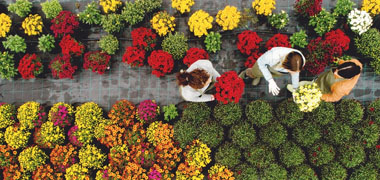
AI Occupational Exposure score unavailable For more insight, research the specific tasks and skills required for the role.
Explore all careersAn Agricultural Economist analyses economic data on agricultural production and markets to improve practices and inform policy, collaborating with stakeholders for sustainability.
Get qualified to work as an Agricultural Economist with a course recognised across Australia. Speak to a training provider to learn more.



Browse occupations related to Agricultural Economist



Embarking on a career as an Agricultural Economist can be both rewarding and impactful, especially in the beautiful region of Hobart, Tasmania. Agricultural Economist courses in Hobart equip students with analytical and economic skills essential for thriving in this dynamic field. By understanding both agriculture and business, prospective graduates are positioned to contribute significantly to industry practices and policies. With numerous training providers recognised by relevant industry bodies, Hobart offers a plethora of opportunities for those eager to excel in agricultural economics.
The field of Agricultural Economics intersects with various disciplines, notably Business courses and Agriculture courses. These foundational subjects enhance your understanding of market dynamics, resource management, and agricultural production systems. For those wanting to apply their knowledge practically, delving into Consulting and Strategy can provide exceptional insights into problem-solving within the agricultural sector in Hobart. The training available here encourages a hands-on approach, vital for future Agricultural Economists.
Upon completing Agricultural Economist courses in Hobart, graduates may explore various related job roles. Positions such as a Business Process Analyst or an Operations Analyst allow individuals to leverage their skills in analysing agricultural data and making informed decisions. Additionally, roles such as a Strategy Manager or Change Management Consultant enable professionals to influence strategic planning within the agricultural sector, thereby fostering sustainable development in Hobart’s farming communities.
The diversity of career paths extends to executive positions, where graduates can aim to become a Chief Marketing Officer (CMO) or a Business Development Consultant. Additionally, those with an interest in health-related economic analysis may find fulfilling opportunities as a Health Economist. There are also prospects in specialised fields such as actuarial science for individuals pursuing an Actuarial Consultant role, further showcasing the versatility available through Agricultural Economist courses in Hobart.
Whether you are a recent school leaver or looking to enhance your skillset, now is an excellent time to consider pursuing Agricultural Economist courses in Hobart. With a thriving agricultural sector in Tasmania and the support of esteemed training providers, your journey towards a fulfilling career in agricultural economics can begin today. Engage with the vibrant community in Hobart and put your education to work, influencing the future of this vital industry. Explore the pathways available to you by visiting [Agricultural Economist courses in Hobart](https://www.courses.com.au/career/agricultural-economist/hobart) and seize the opportunity to make a difference!